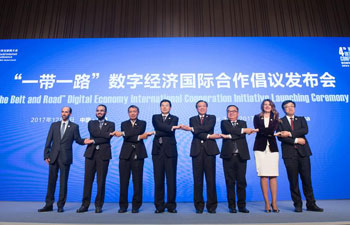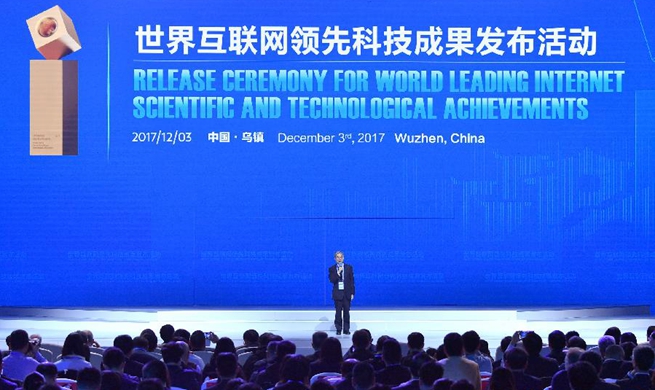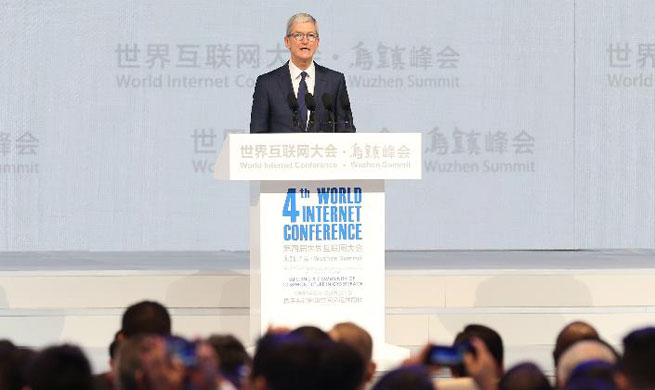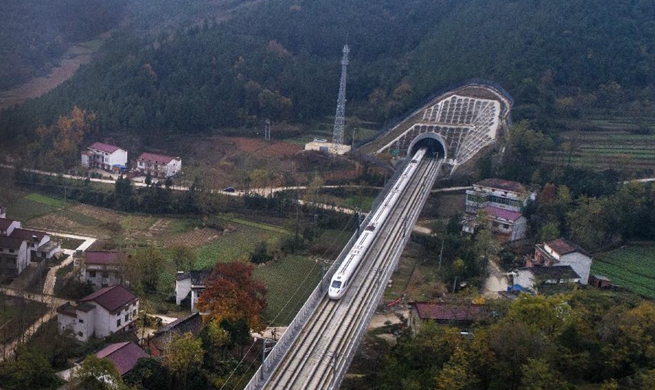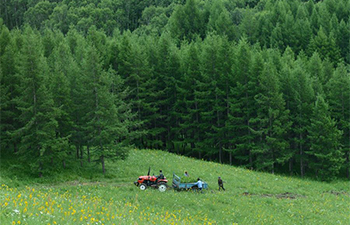by Luis Rojas
MEXICO CITY, Dec. 3 (Xinhua) -- A mix of political uncertainty and slowing economic growth in Latin America may cause investors to take a more cautious approach to investing in the region in 2018, according to experts.
Elections in Brazil, Colombia and Mexico could turn Latin America into a political "minefield," said Marcos Casarin, head of Latin America Macro Research at London-based Oxford Economics.
Similarly, Gabriel Casillas, deputy general director of economic analysis at the Mexican bank Banorte, said all eyes will be on the region's No. 1 and No. 2 economies, Brazil and Mexico.
"Any election will lead to a degree of caution, especially among short-term financial investors," said Casillas.
China Investment Corporation (CIC), a sovereign wealth fund established in 2007, has substantial sums invested in Mexican financial assets.
For the CIC and funds like it, the 2018 presidential race presents a potential risk for short-term investors, although it can also present an opportunity for longer term investments, said Casillas.
A recent survey published by Mexican daily Reforma showed the progressive candidate Andres Manuel Lopez Obrador leading in the polls.
Some worry that the leftist front-runner of July's elections may cause political turbulence and make the markets jittery, despite the fact that as mayor of Mexico City he teamed up with big business, and the likes of business magnates, to promote the rehabilitation of the downtown area.
Also, for the first time, independent candidates not affiliated with any political party will be able to compete in the presidential contest. With lots of contenders and no second round, the winner could triumph with less than 30 percent of the vote.
In Brazil, surveys show left-leaning ex-president Luiz Inacio Lula da Silva is the favorite ahead of the October 2018 elections, but it is still unknown who his rivals will be or even whether Lula will be able to run given the current corruption cases lined up against him.
The prospect of power changing hands always makes the markets nervous, especially when it's a tight race, said Alicia Puyana, professor of economics at the Latin American Faculty of Social Sciences.
"Next year, with the elections, since we don't know what is going to happen or who is going to win ... investors will curb their investment and cause chaos," said Puyana.
That's the price of democracy: it has its risks and rewards, she said, adding "If we don't know who is going to win, that is an indication that no one is manipulating them (the elections)."
While the elections present a challenge, South America must define how it plans to become a more strategic partner for China, instead of a mere consumer, said Jose Luis de la Cruz, general director of the Mexican Institute for Industrial Development and Economic Growth.
"2018 will offer China opportunities in Latin America, where the only thing is to get a clear handle on the region's political axis," he said.
Oxford Economics estimates China's gross domestic product (GDP) could grow between 6 and 6.5 percent in 2018 and 2019.
It is projected that Chinese investment flows towards Latin America would reach 250 billion U.S. dollars by 2025.
To safeguard that investment, said the experts, countries in Latin America need to combat the region's two biggest problems, crime and corruption, to establish a more stable climate that can weather the handover of power.@ "The region has failed to create a solid institutional framework that can be somehow insulated against electoral changes," said de la Cruz.
"The construction of institutions that can guarantee the continuity of sound economic growth, programs and a basic agenda is still pending to protect from political ups and downs," the expert said.






